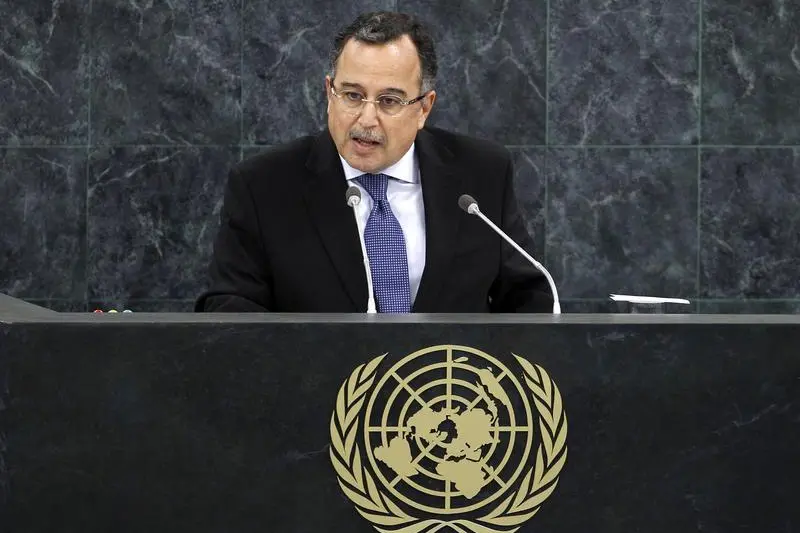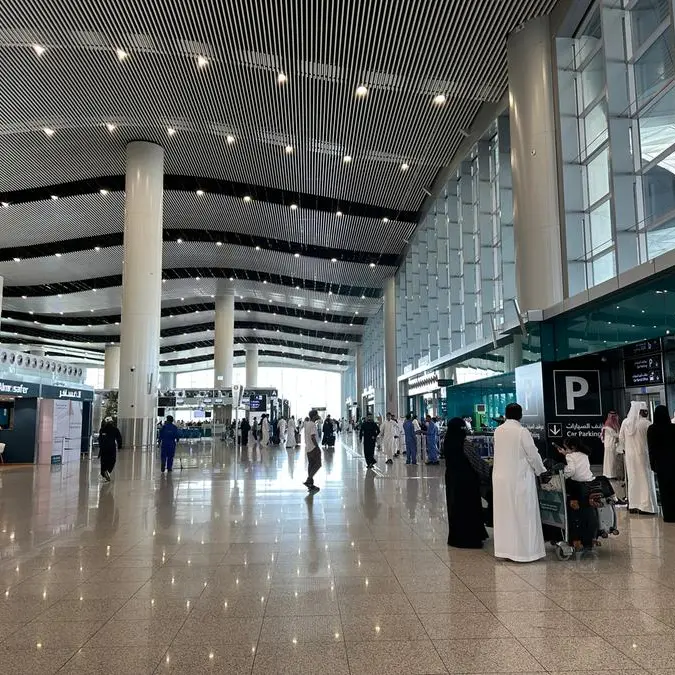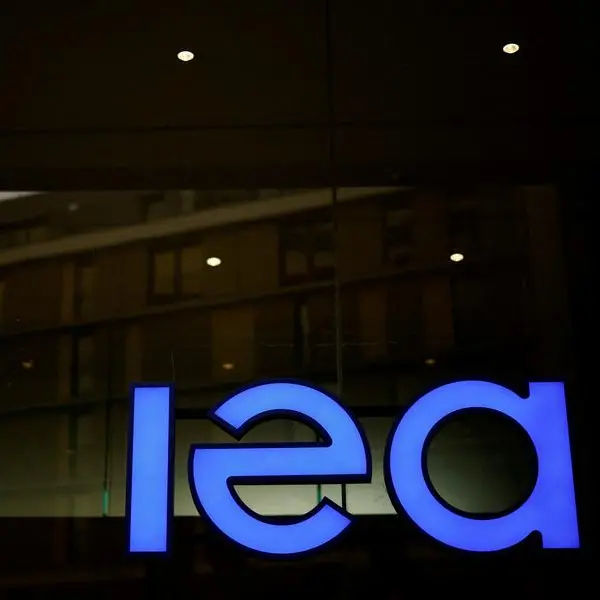PHOTO
By Deana Elimam
As the strangest U.S. presidential race in history enters its final days, Egyptians ponder the increasingly complicated relationship between America and its largest Arab ally.
Last December, following a mass shooting in San Bernadino, California, Donald Trump called for a “total and complete” ban on Muslims entering the United States. The then Republican front-runner’s proposal was impractical (it would violate the First, Fourth and Fifteenth Amendments of the U.S. Constitution guaranteeing religious freedom and due process, among other things) and illogical (the San Bernadino murders were masterminded by a Pakistani-American who had been born and raised in the United States). But Trump’s proposal—one of his most outrageous—aimed to be just that; it played successfully to simmering post-9/11
anti-Muslim sentiment.
In any case, it did not faze President Abdel Fattah el-Sisi—leader of the Arab world’s most populous country and home to some 80 million Muslims. In fact, the Egyptian leader had only positive things to say following their September meeting on the sidelines of the United Nations General Assembly in New York. In an interview with CNN several days later, Sisi dismissed Trump’s controversial comments on Muslims. “During election campaigns, many statements are made and many things are said,” said the Egyptian president, who instead stressed their shared hardline stance on terrorism. For his part, the Republican candidate for president of the United States called Sisi a “fantastic guy” and touted their positive “chemistry.” To clear up any lingering doubt on the matter, Trump’s campaign issued a statement stressing his “high regard for peace-loving Muslims.”
Sisi’s meetings with Trump as well as with Democrat Hillary Clinton the same day were of course more about politics than substance. For Trump, meanwhile, a billionaire developer and former reality show star who has never held public office, the meeting with the Egyptian president was calculated to help him look presidential. A photo op with an Arab world leader who is tough on terrorism held obvious plusses for the GOP candidate. For Clinton, who has served as both first lady and secretary of state during her 30-year political career and met with Arab leaders from Hosni Mubarak to Palestinian leader Mahmoud Abbas, the meeting served to highlight her significantly more substantial credentials as a stateswoman.
However, Sisi was less effusive about Clinton, who raised the issue of Egypt’s human rights record during the sit-down. The Democrat pressed the Egyptian president for the release of Egyptian-American Aya Hegazy, a U.S. citizen who has been imprisoned here since 2014 on what rights groups claim are false charges connected to running an NGO for street children. Still, for now, Sisi avoided saying anything publicly critical of Hillary, who would be the first female American commander-in-chief if she’s victorious in November. He sidestepped a question from CNN about whether Clinton, who he has met several times before, would make a good president: “Political parties in the United States would not allow candidates to reach that level unless they are qualified to lead a country the size of the United States.”
Many American election observers would beg to disagree. The 2016 U.S. presidential election has featured accusations and clashes unlike any other in history. While one of his more outrageous suggestions, the Muslim ban wasn’t out of character for Trump, who has also warned against Mexican “rapists” and suggested building a wall to keep out illegal immigrants. In 2007, there were an estimated 195,000 Egyptian Americans, according to census data. Thanks to a recent spike in immigration, however, demographic researchers believe the number has swelled to upwards of 450,000.
Nonetheless, as the election entered its final weeks, many Egyptian lawmakers praised Trump. The 20-member parliamentary delegation that went to New York in September to rally support for Egypt’s political and economic reforms told reporters that Donald Trump would be a “good friend” to Egypt in comparison with Hillary Clinton, reported state-owned Ahram Online. “Sometimes it’s better if a candidate doesn’t have predisposed positions towards Egypt, because it gives us a chance to establish new relations,” says Mohamed El-Orabi, who heads the Egyptian parliament’s Foreign Relations Committee.
Such statements reflect the tense state of affairs that has prevailed between Sisi’s Egypt and the Obama administration, which has been critical of Egypt’s current government. Following the mass protests that culminated in the ouster of President Mohamed Morsi in July 2013, the United States restricted military aid to Egypt, citing a U.S. law barring such assistance for unelected governments. In March 2015, the United States restored its annual $1.3 billion in aid to Egypt, citing U.S. national security, restoring its status as the second-largest recipient of American aid after Israel.
The Egyptian regime has given high priority to its war on terror, fighting religious extremists in the Sinai Peninsula and elsewhere. Whoever wins the U.S. presidency, “Counter-terrorism will be one of the most important issues facing the Egypt-U.S. relationship in the future,” says Nabil Fahmy, a former Egyptian ambassador to the United States and foreign minister, echoing the view of many Sisi supporters that “it would be easier to tackle these issues with a Republican rather than a Democrat.” In contrast to Trump’s hawkish stance, a Hillary Clinton administration would likely be more or less a continuation of the foreign policies of Barack Obama, a president who has been unpopular in Egypt, where there is a widespread perception that the American president backed Morsi and his Islamist administration.
Seeking to capitalize on this sentiment, Trump blames Clinton for—among many other things—the political ascent in 2012 of the Muslim Brotherhood, which is now outlawed as a terrorist organization in Egypt. During a speech last summer at the Republican National Convention in Cleveland, Ohio Trump charged that “Egypt was peaceful,” before Hillary Clinton took the helm of the state department, when the country was then "turned over to the radical Muslim Brotherhood, forcing the military to retake control.” Clinton, who was secretary of state at the time of the 2011 uprising, looks back on the Arab Spring in her memoir, “Hard Choices.” While Obama backed Tahrir Square protesters’ demand for President Hosni Mubarak, a longtime U.S. ally, to step down, Clinton counseled pushing for a more gradual transition, offering the president what now seems like a “prophetic warning,” writes David Ignatius in The Washington Post. “It all may work out fine in 25 years, but I think the period between now and then will be quite rocky for the Egyptian people, for the region, and for us,” Clinton recalls telling Obama. “Senior Cabinet officials, including me, counseled caution,” she writes. “Those of us who favored the stodgy-sounding ‘orderly transition’ position were concerned that the only organized forces after Mubarak were the Muslim Brotherhood and the military.”
Troubled times
Since the Camp David Accords and the signing of the Egypt-Israel Peace Treaty in 1979, Egypt has been a key American ally in a volatile region. However, “The changes of the last five years have shaken the U.S.-Egyptian relationship to its core,” writes Middle East analyst Jon Alterman of the Center for Strategic & International Studies in Washington, D.C. in a report titled “Making Choices: The Future of the Egyptian-U.S. Relationship.” Alterman observes that “many Egyptians have come to believe that the United States was too accommodating to an elected government that was abusing its power and too critical of an unelected government with clear popular support.” Americans, meanwhile, felt that “Egyptians were squandering valuable opportunities” to build real democracy and tackled entrenched problems like poverty and corruption.
Among Egyptians, resentment of what’s perceived as American meddling in Egypt’s affairs is at an all-time high. Under President Obama, says Orabi, the country has “suffered from a U.S. administration that does not understand the will of the Egyptian people.”
Egypt’s cold but lasting peace with Israel has clearly benefited both Egypt and the United States over the years, argues Alterman, who writes that “the bedrock of the U.S.-Egyptian relationship is the security ties that link the two countries.” U.S. military assistance accounts for about a quarter of Egyptian defense expenditures, and its friendship with the United States has boosted the country’s regional clout as well as its military might. Egypt now owns more than 200 F-16 warplanes and more than 11,000 M1 tanks. America, meanwhile, has benefited from Egypt buying its weapons.
In regional affairs, Egypt “has often been a multiplier of U.S. power, and the United States has been a multiplier of Egypt’s power in return,” writes Alterman. As for what Hillary Clinton’s policies in the Middle East might look like, it’s worth noting that Clinton was an architect of one of Obama’s key foreign policy initiatives, the “Asia pivot,” which was largely meant to signal an end to the Bush administration’s obsession with the Middle East and terrorism (although the term has rarely been heard in the waning days of Obama’s presidency.)
Trump, on the other hand, has vocalized very little in the way of a regional foreign policy apart from stamping out “radical Islam.” After two incidents in September—a bombing in New York that involved a suspect who praised the Islamic State and stabbings in Minnesota for which the Islamic State claimed credit— Trump pledged to “utterly destroy ISIS.” But he has refused to give any coherent specifics on what his strategy would be on the issue (or on many others)—apart from bombing “the hell out of those oil fields” controlled by the Islamic State. Alternately, Trump has called at different times for “very few troops on the ground” and deploying 20,000 to 30,000 troops to fight ISIS. His suggestion to solve to the global refugee crisis is to relocate Syrians fleeing the war to a “safe zone” financed by Gulf states “who are not spending any money and are rich as can be.” Indeed, Trump has singled out America’s Gulf allies, especially Saudi Arabia, for not doing enough to fight Islamist fanatics. On the Israeli-Palestinian issue, Trump initially advocated taking a “neutral” stance, but more recently, he’s tried to toe the traditional GOP line, speaking in favor of new Jewish settlements and calling himself “a big fan of Israel.” In a meeting with Prime Minister Benjamin Netanyahu of Israel that took place a week after his chat with Sisi, Trump went so far as to say he’d recognize Jerusalem as the capital of the Jewish state, a move that would represent a dramatic shift in U.S. policy not to mention alienate many in the Arab world.
National security and foreign policy experts on both sides of the political spectrum have expressed alarm at Trump’s proposals, which have often been “contradictory, impossible and even illegal,” as the The Washington Post put it recently. “I don’t think he has a well-thought-through position on anything,” Eliot Cohen, a top state department official under President George W. Bush, said to the paper. Cohen helped organize an open letter denouncing Trump earlier this year that was signed by more than 100 Republicans. “I don’t think he’s read much, I don’t think he’s studied these issues. I think, like with so many other topics, he’s just emoting,” he said. In a recent op-ed in the Wall Street Journal, Robert Gates, a former secretary of defense under the Bush and Obama administrations, called the Republican candidate “willfully ignorant about the rest of the world, about our military and its capabilities, and about government itself.”
Investing in the future
This often surreal American presidential race comes at a moment when U.S. foreign investment in Egypt is crucial to righting the country’s battered economy. More than 1,000 U.S. firms do business in Egypt, in sectors from energy to manufacturing, including multinationals like Coca-Cola, IBM, ExxonMobil, Citigroup, Microsoft, and Apache Corp. In 2015, U.S. investments in Egypt totaled more than $20 billion. Analysts generally agree that bolstering FDI is the only long-term solution to a spiraling foreign currency shortage that has spurred rocketing prices, hurt businesses and scared off investors. Last month, the pound hit a new low on the black market, trading at well above LE 13, compared with the official Central Bank rate of around LE 8.8. Foreign reserves have shrunk to near critical levels in this heavily-import dependent country, registering around $19.6 billion in September compared to some $36 billion on the eve of the 2011 uprising.
Egypt’s trade deficit remains close to $38 billion annually. Trade between Egypt and the U.S. amounted to more than $6 billion in 2015, with the surplus weighted heavily toward the United States—Egypt exported $1.4 billion worth of goods from the United States and imported $4.7 billion that year, according to U.S. government statistics. Since 2007 Egyptian textile exports have benefited from the Qualified Industrial Zones deal, which enables companies operating within QIZ zones to export their products duty free to the American market in exchange for using a certain percentage of Israeli components in the manufacturing process.
In August, Egypt struck a preliminary deal with the International Monetary Fund for a $12-billion loan package, which officials hope will send a reassuring signal to foreign investors that Egypt is on the right track to economic reform. The deal, which is still subject to the approval of the IMF executive board, is to be part of a larger, $21-billion bailout package over the next three years that includes international bond issuances, support from the World Bank and African Development Bank and floating shares in public sector enterprises. The local business community is looking to the international loan package to help right the struggling Egyptian economy. Hisham Fahmy, former CEO of AmCham and the current head of AmCham Inc., the Chamber’s Washington, D.C. arm, said that the IMF aid is “coming at the right time and should give confidence to investors from the United States and elsewhere.” He added that “it will also resolve the foreign currency issue.” Critics, however, have raised concerns about how hard the policies of austerity on which the loans will depend—including subsidy cuts and higher taxes—will hit the Egyptian population, particularly the poor. Another question is whether the Egyptian economy can generate enough foreign currency to service its mounting debt, which is already eating up nearly a third of public spending.
During his recent visit to the United States, Sisi touted recent efforts to make Egypt more business friendly by reducing its notorious levels of red tape, among other things. Mohamed Khodeir, CEO of the General Authority for Investment and Free Zones, told Reuters in a recent interview that Egypt aims to attract $10 billion in foreign direct investment in fiscal 2016/17, up from $6.8 billion this year, following upgrades to roads and power infrastructure. “Egypt has had a very difficult five years preceded by a historical baggage of things that needed to be done and were not done,” he said.
Meanwhile, much of the commentary on the U.S. elections in the Egyptian press reveals a deeply cynical view of Egypt-American relations. Morsi Attallah, former editor in-chief of state-owned Al Ahram, writes in an September op-ed in the paper that Clinton and Trump are “two sides of the same coin” when it comes to the Arab world—but at least Trump is more upfront about his animosity.
Trump’s anti-Muslim Brotherhood statements have also helped him score points with MPs and other members of the Sisi government. Ahmed Gad, a member of parliament’s Foreign Relations Committee, told the right-wing website Breitbart News that “90 percent of Egyptians would prefer Trump because he will not cooperate with terrorists.” Solaf Darwish, an MP from the Nile Delta governorate of Qalioubiya, told Ahram Online: “There is no question that President Sisi also saw Trump as representing a new political trend which stands against Barack Obama's tolerance for political Islam and estrangement with Egypt under his rule.”
Such statements illustrate how dramatically local sentiment has changed since 2009, when newly elected U.S. President Barack Obama spoke before an emotional crowd at Cairo University about forging “A New Beginning” with the Muslim world. “It is easier to start wars than to end them. It is easier to blame others than to look inward, to see what is different about someone than to find the things we share,” Obama then told a cheering Egyptian crowd. In the landscape of 2016, the words of the soon-to-be departing American president seem darkly prescient, no matter who wins in November.
“The new U.S. president will have to reset the relationship,” says Fahmy of AmCham. “There will have to be better communication between the two countries.”
© Business Monthly 2016





















